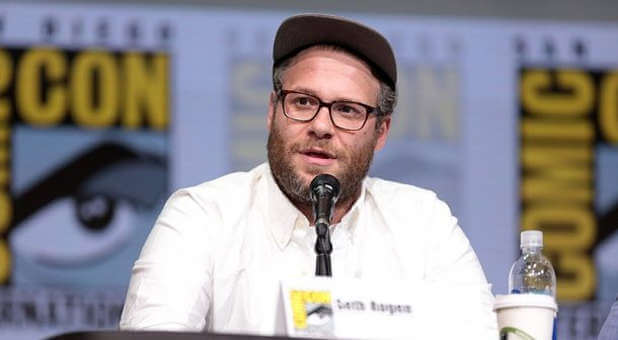After creating a firestorm in the media over questioning Israel’s right to exist and bashing Judaism, Jewish actor Seth Rogen refused to apologize for his comments made during a podcast interview.
“[As] a Jewish person I was fed a huge amount of lies about Israel my entire life,” Rogen had said. “They never tell you that, ‘Oh, by the way, there were people there.’ They make it seem like it was just like sitting there, like the (expletive) door’s open.”
Rogen was contacted by former Israeli politician Isaac Herzog, who now heads the Jewish Agency, to discuss his comments. After the two spoke with each other on a Zoom call, Herzog published a long Facebook post about how the actor apologized for his statements and focused on what he meant to say, including “how important Israel is to him. And that, of course, Israel must exist.”
Rogen, however, said Herzog misrepresented his comments and should not have publicized the content of what he believed to be a private conversation.
“I did not apologize for what I said. I offered clarity. And I think [Herzog] is misrepresenting our conversation,” Rogen told Haaretz. “At no point did I give him permission to publish any part of the conversation.”
Herzog “sent a letter to my mother on very fancy letterhead. My mom implored me to call this guy and I did and told him I thought this was a private conversation … at no point did I give him permission to publish any part of the conversation.”
Herzog defended the actor in his original post, saying that Rogen made his statements in jest. The damage was done, though, as most people commenting on Herzog’s post said the actor had already alienated them.
Rogen was raised in a Jewish home in Canada where he said he was “fed a bunch of lies” about Israel.
“To me it just seems an antiquated thought process. If it is for religious reasons, I don’t agree with it, because I think religion is silly,” he said in the interview. “If it is for truly the preservation of Jewish people, it makes no sense, because again, you don’t keep something you’re trying to preserve all in one place—especially when that place is proven to be pretty volatile, you know? ‘I’m trying to keep all these things safe; I’m going to put them in my blender and hope that that’s the best place … that’ll do it.'” {eoa}
Ron Cantor a citizen of the rebirthed nation of Israel, the United States and heaven. He helps to lead a congregation in Tel Aviv called Tiferet Yeshua—the Glory of Yeshua—along with its team of pastors and elders. He is also a published author of the book Identity Theft with Destiny Image Publishers.
For the original article, visit messiahsmandate.org.














































